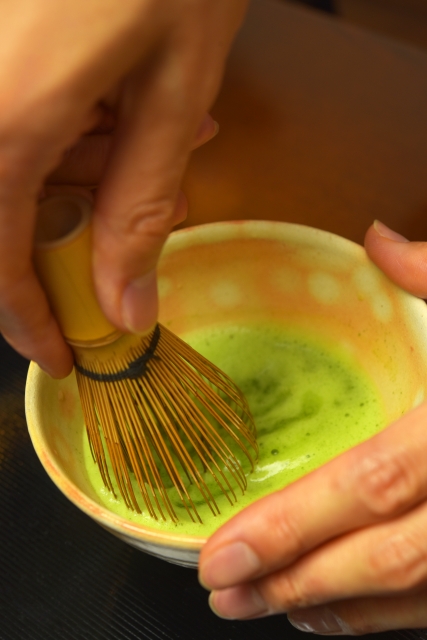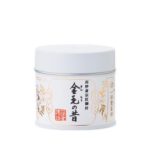Matcha green tea, the traditional Japanese drink

When it comes to the traditional Japanese drink, you may firstly think of sake (Japanese rice wine). But Matcha is also popular around the world in these days.
Other types of Japanese green tea including Sencha and Gyokuro are in the state of the leaves just like as the Western tea. Meanwhile, you use the powder of green tea when you drink Matcha.
Of course, the drink takes the central role in the tea ceremony, and it can add the new flavors for various kinds of foods and drinks.
What is a Matcha?
Production method
The powder of Matcha is made from the leaves of Tencha grown with the covers and dried without rubbing.
But you would also find the green tea powder made from Sencha, more refreshing taste than Tencha, at a shop. So take note when you buy them.
Sencha powder
History
More than about 1300 years ago, Japan introduced the green tea from China as a medicine for the noble class. However, the custom of drinking the green tea had fallen into disrepair for hundreds of years.
In 1191, the high Zen priest Eisai who learned the Buddhism in China instructed the Chinese way to make the powder of the green tea and to stir it. Furthermore, he presents his book written about the effects of Matcha to the shogun Minamoto Sanetomo.
Sen no Rikyu and other tea masters completed Japanese tea ceremony in Azuchi-Momoyama period (1568-1600). It spread the drink all over Japan.
Nutrition and benefits
Nutrition of Matcha (1tbsp, 6g)
- Caloriea:19kcal
- Protein:1.84g
- Lipid: 0.32g
- Carbohydrate:2.31g
- Vitamin A:144μg
- Vitamin E:1.69mg
- Vitamin K:174μg
- Vitamin B1:0.04mg
- Vitamin B2: 0.08mg
- Vitamin B6: 0.06mg
- Vitamin C: 3.6mg
- Niacin: 0.24mg
- Folic Acid:72μg
- Sodium:0.36mg
- Potassium: 162mg
- Calcium:25.2mg
- Magnesium:13.8mg
- Phosphorus:21mg
- Iron:1.02mg
- Zinc:0.38mg
- Copper: 0.04mg
Matcha contains a lot of vitamin A, E, K, and Folic Acid. And you can also get plenty of catechin, tannin, and theanine. The quantity of polyphenol in Matcha is more than twice other green tea.
Drinking the special healthy tea brings you the follwoing benefits for your body.
- Antioxidative effect (prevention for hardening of the arteries, high blood pressure, stroke, and lifestyle disease)
- Cancer prevention
- Regulation of the function of intestine
- Activation of brain cells (dementia prevention, improvement of memory and learning ability)
- Sterilization (prevention for bad breath, cold, influenza, and food poisoning)
- Making the skin beautiful
- Stress relief effect
- Deodorant effect
But you should take care not to drink too much even it has the good effects! Because Matcha has a high calorie.
Let’s dring Matcha!
We can hardly have an opportunity to experience a tea ceremony. But we can enjoy Matcha by ourself at the home.
Where to buy? From here!
If you look for an organic Matcha powder, enter “organic” before the word of “Matcha” and click “Go”.
Like a tea ceremony
Per person
- Tea powder:2 bamboo scoop (1 tsp, about 1.5g)
- 70℃-80℃ hot water(in summer. 75℃-85℃ in winter):50cc-70cc
You can control the strength of the tea with the amount of the powder or water. And if you want to drink it in the air of tea ceremony, I recommend using a bamboo scoop and whisk, and ceramic tea bowl.
Custermizing your only Matcha tea set!
Latte
per person
- Tea powder:1 1/2 tsp
- Hotwater:1 Tbsp
- Milk (soy milk):1 cup
- Sugar:1 tsp
The recipe by Just One Cookbook



